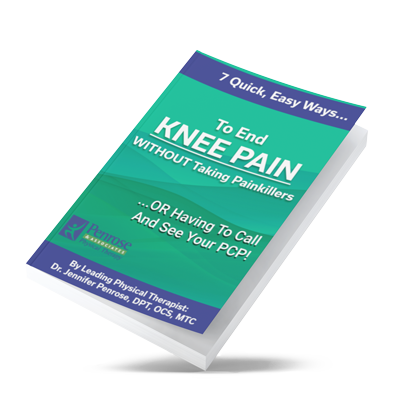Imagine waking up in the morning with a strange tingling in your feet, a burning sensation in your hands, or even a numbness that makes it hard to move confidently. For millions, this is the reality of living with peripheral neuropathy or its diabetes-linked counterpart, diabetic neuropathy. The good news? It doesn’t have to stay that way. Advances in understanding and treating neuropathy are giving people new hope—and Penrose Physical Therapy is at the forefront of this movement.
What’s Really Going On With Your Nerves?
Your nerves are like a superhighway, carrying messages between your brain and body. But when that highway gets damaged, the signals can slow down, get mixed up, or stop entirely. Peripheral neuropathy, caused by issues like diabetes or poor circulation, impacts the nerves in your hands, feet, and legs the most.
For those with diabetes, think of it this way: high blood sugar levels act like tiny wrecking balls, damaging the delicate blood vessels that keep nerves healthy. Over time, this leaves your nerves gasping for the nutrients they need, and you’re left with symptoms like tingling, burning, or numbness.
Spotting the Signals
Peripheral neuropathy might start with something small: an annoying “pins and needles” feeling in your toes or fingers. But it can quickly escalate:
- Burning pain that keeps you up at night.
- Numbness that makes walking feel awkward or unsafe.
- Weak muscles that affect your balance or grip.
If any of this sounds familiar, you’re not alone—and there’s help.
What’s the Plan? The New Science of Beating Neuropathy
For a long time, people were told to just “live with it.” Not anymore. At Penrose Physical Therapy, we’re using advanced techniques and modalities to take the fight to neuropathy—and win. Here’s how you can, too:
1. Move More, Feel Better
You don’t have to be a gym rat to get relief. Gentle exercises like walking or swimming do wonders for nerve health by boosting blood flow. And here’s the secret: you only need a few minutes a day to start seeing improvements. Over time, small steps can lead to big changes.
2. High-Tech Help for Nerve Repair
Say goodbye to outdated treatments. Penrose Physical Therapy uses pulsed radiofrequency therapy, an innovative, non-invasive technology that “recharges” damaged nerves. Think of it as giving your nerves a fresh start, promoting healing and reducing pain at its source.
3. Lifestyle Tweaks That Make a Big Difference
Simple adjustments can make life with neuropathy a lot easier. Try this:
- Check your feet daily for signs of irritation or injury.
- Use supportive footwear to keep pressure off sensitive areas.
- Incorporate a stretching routine to improve flexibility and reduce stiffness.
And don’t forget: keeping blood sugar levels steady is like giving your nerves a protective shield, especially if you’re managing diabetes.
The Penrose Difference
At Penrose Physical Therapy, we believe no one should feel stuck or defeated by neuropathy. That’s why we don’t just offer treatments—we offer transformation. Our team combines cutting-edge therapies, personalized care, and a commitment to your success to help you take control of your health.
We’re also thrilled to announce a free community workshop on neuropathy, where we’ll share insights, answer your questions, and discuss treatments that are making a real difference. Stay tuned for details—it’s an event you won’t want to miss.
You Deserve Relief—And We’re Here to Help
Peripheral neuropathy doesn’t have to control your life. Whether you’re struggling with pain, numbness, or both, there are solutions that can help you feel like yourself again. Let Penrose Physical Therapy be your partner on the path to healing.
Visit us at:
1445 Galaxy Dr. NE, Suite 301
Lacey, WA 98516
Contact us:
Phone: 360-456-1444
Email: info@penrosept.com
It’s time to step into a future where neuropathy doesn’t hold you back. Together, we’ll make it happen.






